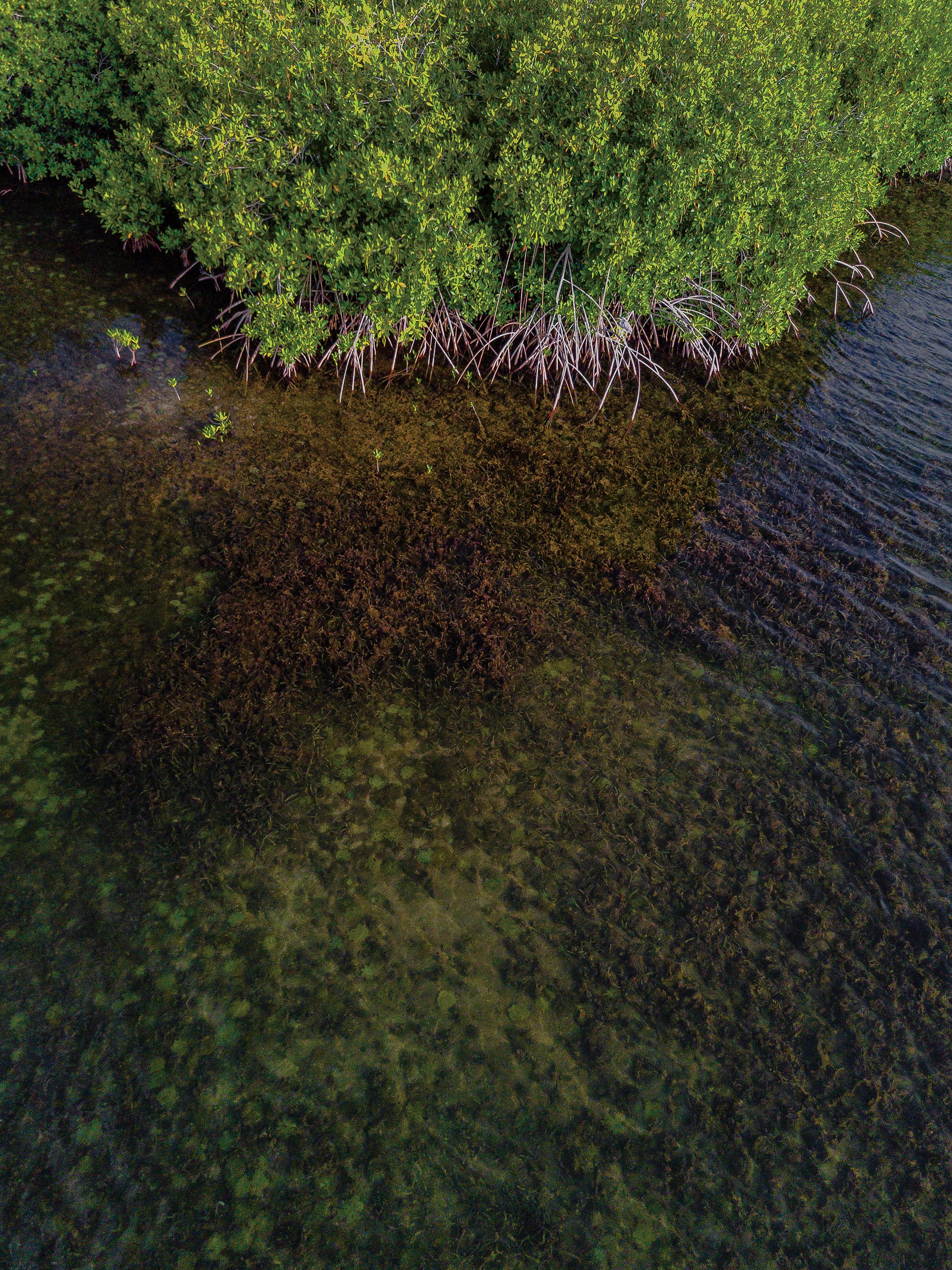
NATURE FOR PEOPLE,
CAYMAN ISLANDS
NATURE FOR PEOPLE
Words by Laura Butz, National Trust for the Cayman Islands. Photo by Omari Rankine.
PRESERVING CRITICAL ECOSYSTEMS IN THE CAYMAN ISLANDS.
THE IMPORTANCE OF MANGROVES
The escalating rate of development in the Cayman Islands is resulting in the rapid loss of mangroves – critical wetland habitats tha are integral to our islands.
It is essential to protect our wetlands as they play a crucial role in our resilience to the effects of climate change, creating coastal barriers that protect us from stronger storms, absorbing excess rainfall in flooding events, creating rain in times of drought, and mitigating higher temperatures. Mangroves also support the islands’ biodiversity by providing a haven for local wildlife and juvenile marine species.
The tragedy of mangrove deforestation isn’t just the loss of trees, it is also the loss of thousands of years of carbon stored in the soil beneath them. Removing mangroves releases carbon back into the atmosphere worsening climate change while negatively impacting our local environment.
The Central Mangrove Wetland, which covers 8,665 acres, is the ecological heart of Grand Cayman. To date, the National Trust for the Cayman Islands (NTCI) has purchased 1,032 acres as part of its Central Mangrove Wetland reserve, and safeguards this vital habitat in perpetuity for the people of the Cayman Islands.
BUILDING IN HARMONY
The National Trust supports sustainable development that takes nature into account. Saving nature in residential areas supports wildlife, while improving the residents’ experience. This means removing vegetation only where necessary for new developments, thus allowing wildlife to remain in place – a feature that the property residents will enjoy daily as colourful birds and butterflies flit outside their windows.
Mature landscaping adapted to the local environment also adds value to a development, while being low-cost and low-maintenance, and taller trees will shade residences, reducing cooling costs. It’s not nature or people, but nature for people.
EDUCATION AND AWARENESS
A key pillar of the NTCI’s conservation work is preserving ecologically significant habitats that are essential for the survival of native plant and animal species. This includes education and awareness about mangroves’ vital benefits so the community develops a stronger appreciation for these ecosystems.
The NTCI efforts include educational mangrove videos on the NTCI YouTube channel, Education and Environment Managers visiting schools to give engaging presentations and lead field trips, and NTCI offers ‘Lunch and Learn’ sessions for corporations to discuss environmental issues.
HELPING TO PROTECT AND PRESERVE
Currently, the National Trust protects 6% of Cayman’s natural environment and aims to safeguard 11% of vital ecosystems across all three islands.
The NTCI has partnered with the local NGO Island Offsets to provide an avenue for local businesses and individuals to offset their carbon footprint by donating to the mangrove fund to purchase and protect wetland areas. Unavoidable carbon emissions are offset by preserving this carbon-rich ecosystem to achieve net zero or carbon neutrality.
Donations made to the Land Reserve Fund (US tax-deductible options are available) help with the financial support needed to procure critical natural habitats, including mangroves, ancient forests and other vital land areas across our three islands. These environmentally sensitive areas are legally protected in perpetuity for the people of the Cayman Islands.
For more information contact, Frank Roulston, Executive Director The National Trust of the Cayman Islands:
Call: 345.749.1122
Email: director@nationaltrust.org.ky
Click: www.nationaltrust.org.ky
Visit: Dart Family Park, South Church Street, George Town
For more information contact, Frank Roulston, Executive Director The National Trust of the Cayman Islands:
Call: 345.749.1122
Email: director@nationaltrust.org.ky
Click: www.nationaltrust.org.ky
Visit: Dart Family Park, South Church Street, George Town
